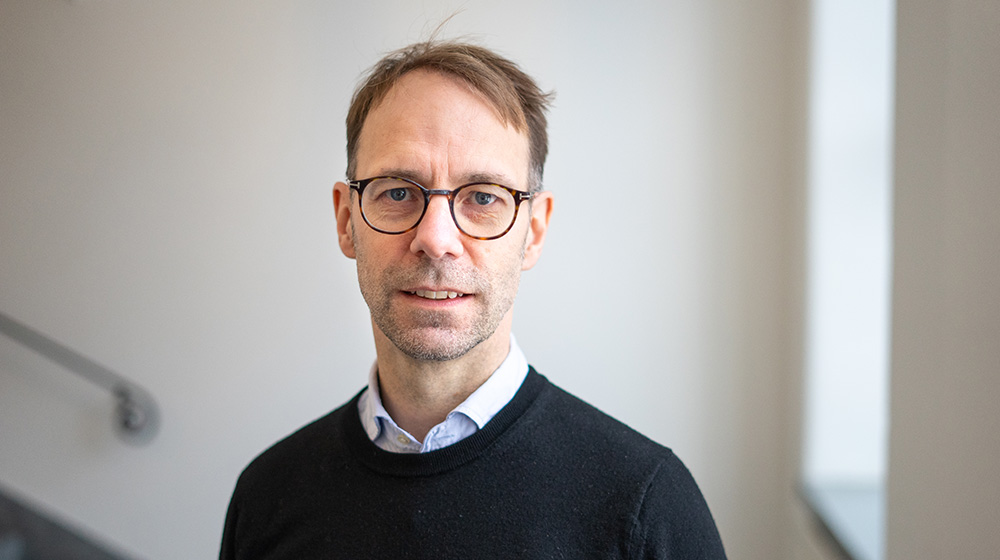Peter Dinér new Head of department of Chemistry

Starting on 1 February, Peter Dinér will assume the position of Head of the department of Chemistry. He succeeds Istvan Furo, who has chosen to step down from the role after several years in the position. The role involves responsibility for the department's operations.
”KTH is currently undergoing a period of transformation in terms of its campus, organisation, facilities, and faculty funding, which will require a dynamic organisation capable of adapting to changing conditions,” says Peter Dinér.
Peter Dinér is a professor of organic chemistry and has served as the Head of the division of Organic Chemistry for the past ten years.
“In my role as Head of division, I have gained a good overview of the department’s activities. At the department of Chemistry, we have a strong focus on fundamental science, and it is this cutting-edge expertise in basic research that we apply to areas such as batteries, solar cells, and materials," he says.
What is the first thing you will do as Head of department?
“I will be holding discussions with the departments and the institution's faculty to explore future plans. How should we organise ourselves moving forward? What facilities do we need, and on which campuses should we be based?
The key to this process is ensuring participation in discussions at the departmental level, which will, in turn, promote transparency around the reasons behind our decisions and changes. For example, the department will face a number of retirements over the next 5–10 years, which will impact its organisation, requirements for facilities, and ultimately the focus on both research and teaching.
It is therefore essential to consider both short- and long-term perspectives when planning the department's activities for the years ahead.”
Do you have a particular issue you want to highlight?
“We need to collaborate more with others, both within the department, at the CBH School, and more broadly across KTH. This is essential to strengthen the resources within our own research environment and to ensure that we attract talented staff and have access to well-functioning instrumentation. KTH funds approximately 40 per cent of the faculty’s salary for research, with the remaining 60 per cent coming from external funding, teaching, or other assignments.”
Do you see any particular challenges?
“It is crucial to have a faculty that contributes to both excellent research and teaching, but the challenge lies in finding the right balance between the two, as research funds the majority of the department’s activities.
You need to learn how to prioritise and juggle multiple responsibilities, but it is equally important to strike a balance between work and leisure. For KTH to remain sustainable – both financially and in terms of research – the funding provided by KTH for the faculty must increase. This is essential if we are to stay competitive internationally.”
Text: Åsa Karsberg
